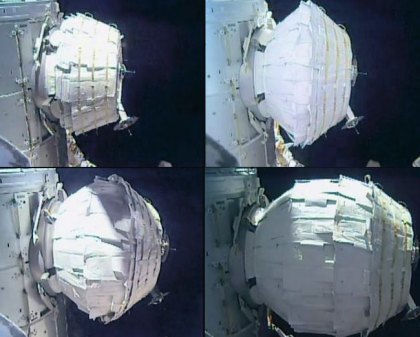Science in brief: Station's module inflates

Still in the experimental stage, BEAM is the focus of much attention as part of an investigation into possible space habitats. NASA is looking for expandable habitats for exploration involving cislunar space (space between the Earth and the moon), in-space transit habitation and surface habitation. An expandable habitat also requires less space on a rocket.
Researchers want to evaluate the inflatable room's ability to protect against conditions such as solar radiation, space debris and temperature extremes. After a two-year test period the module is to be jettisoned and will burn during descent through Earth’s atmosphere.
The module did not fully expand when researchers attempted to inflate it May 26. After researchers met to determine what might be going wrong, they tried again over the weekend and were successful.
UNKNOWN SPECIES: As it turns out, there is life on Earth that we don’t know about, scientists say.
Researchers have identified only one-thousandth of 1 percent of an estimated 1 trillion species on Earth, according to a new study in Proceedings of the National Academy of Sciences.
Scientists made the estimate using microbial, plant and animal data sets from government, academic and citizen-science sources. “Altogether, these data represent more than 5.6 million microscopic and non-microscopic species from 35,000 locations across all the world's oceans and continents, except Antarctica,” according to a National Science Foundation news release.
The research includes life forms such as bacteria, too small to be seen with the naked eye. The work was led by Jay Lennon, associate professor, and Kenneth Locey, post-doctoral fellow, in the Department of Biology at Indiana University in Bloomington.
Related:
Science in brief: Brain waves identify you
Scientists name spider after Johnny Cash
If you would like to comment, give us a shout, or like us on Facebook and tell us what you think.

